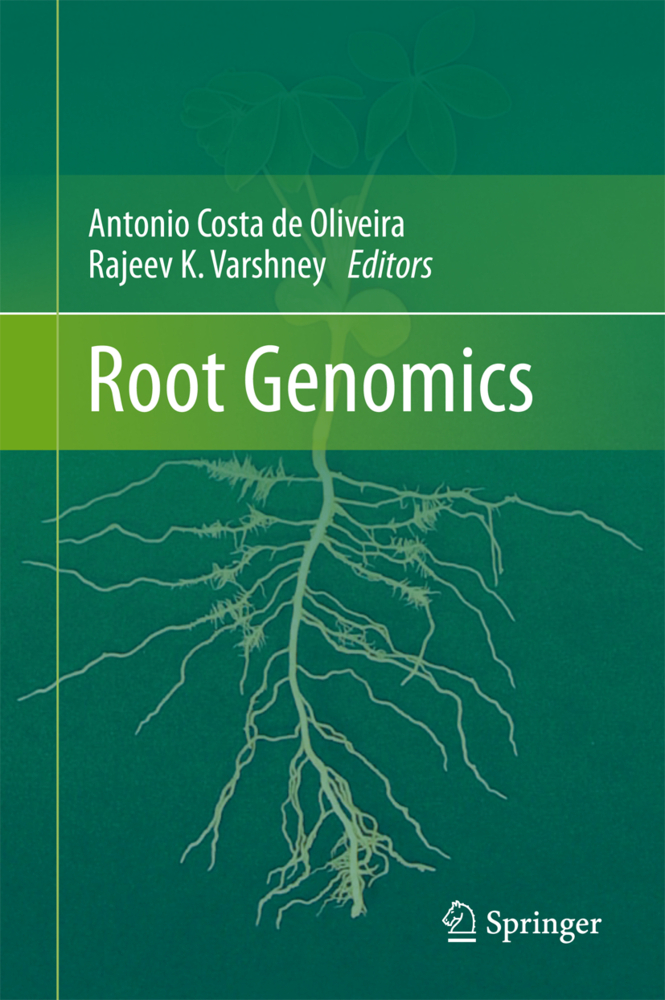Root Genomics
Root Genomics
With the predicted increase of the human population and the subsequent need for larger food supplies, root health in crop plants could play a major role in providing sustainable highly productive crops that can cope with global climate changes. While the essentiality of roots and their relation to plant performance is broadly recognized, less is known about their role in plant growth and development.
"Root Genomics" examines how various new genomic technologies are rapidly being applied to the study of roots, including high-throughput sequencing and genotyping, TILLING, transcription factor analysis, comparative genomics, gene discovery and transcriptional profiling, post-transcriptional events regulating microRNAs, proteome profiling and the use of molecular markers such as SSRs, DArTs, and SNPs for QTL analyses and the identification of superior genes/alleles. The book also covers topics such as the molecular breeding of crops in problematic soils and the responses of roots to a variety of stresses.
Genomics of Root-Microbe Interactions
Plant genetics for study of the roles of root exudates and microbes in the soil
Impact of the environment on root architecture in dicotyledoneous plants
Mechanisms of aluminium tolerance
Root responses to major abiotic stresses in flooded soils
Genomics of root architecture and functions in maize
Phenotyping for root traits and their improvement through biotechnological approaches to sustaining crop productivity
Genomics and physiological approaches for root trait breeding to improve drought tolerance in chickpea (Cicer arietinum L.)
Molecular breeding of cereals for aluminium resistance
Molecular breeding of rice for problem soils.
Introduction to root genomics
EST-based approach for dissecting root architecture in barley using mutant traits of other speciesGenomics of Root-Microbe Interactions
Plant genetics for study of the roles of root exudates and microbes in the soil
Impact of the environment on root architecture in dicotyledoneous plants
Mechanisms of aluminium tolerance
Root responses to major abiotic stresses in flooded soils
Genomics of root architecture and functions in maize
Phenotyping for root traits and their improvement through biotechnological approaches to sustaining crop productivity
Genomics and physiological approaches for root trait breeding to improve drought tolerance in chickpea (Cicer arietinum L.)
Molecular breeding of cereals for aluminium resistance
Molecular breeding of rice for problem soils.
Costa de Oliveira, Antonio
Varshney, Rajeev
| ISBN | 978-3-642-42261-4 |
|---|---|
| Artikelnummer | 9783642422614 |
| Medientyp | Buch |
| Auflage | 2011 |
| Copyrightjahr | 2014 |
| Verlag | Springer, Berlin |
| Umfang | XIV, 318 Seiten |
| Abbildungen | XIV, 318 p. |
| Sprache | Englisch |







